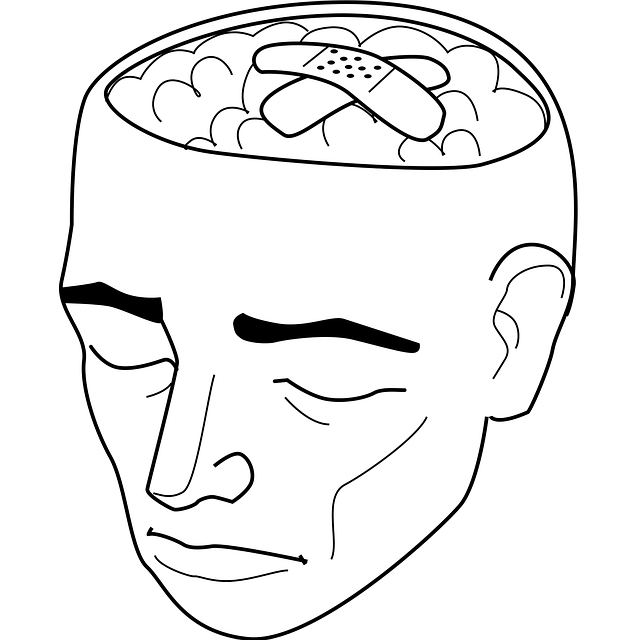Mental wellness involves emotional, psychological, and social well-being, which can be nurtured through self-care practices like mindfulness, exercise, and quality sleep. Westminster Dialectical Behavioral Therapy (DBT) offers structured skills for emotion management, distress tolerance, and improved relationships, proven effective in preventing burnout and anxiety. Establishing a robust self-care routine begins with introspection using DBT tools to set SMART goals, leading to emotional well-being. Incorporating DBT techniques into your schedule, along with mental health advocacy and policy analysis, contributes to long-term sustainable mental wellness.
In today’s fast-paced world, prioritizing mental wellness is paramount. This comprehensive guide explores how to develop a robust self-care routine, featuring insights from Westminster Dialectical Behavioral Therapy (DBT) experts. We’ll delve into understanding mental wellness, leveraging DBT techniques for building resilience, identifying personal needs, setting achievable goals, and crafting tailored daily and weekly schedules. Discover how to integrate these practices for long-term mental wellness success.
- Understanding Mental Wellness and Self-Care
- The Role of Dialectical Behavioral Therapy (DBT) in Building a Routine
- Identifying Personal Needs and Setting Realistic Goals
- Crafting Your Daily and Weekly Self-Care Schedule
- Integrating DBT Techniques into Your Routine for Long-Term Success
Understanding Mental Wellness and Self-Care

Mental wellness is a holistic concept encompassing our emotional, psychological, and social well-being. It’s about recognizing and valuing the intricate balance within us and nurturing it with deliberate actions. Self-care, an integral part of mental wellness, involves activities that empower individuals to maintain or restore their mental equilibrium. It’s not merely a luxury but a necessity, especially in today’s fast-paced world where stress and anxiety are prevalent.
Self-care practices, such as mindfulness meditation, exercise, and quality sleep, have been renowned for their effectiveness in promoting mental wellness. Westminster Dialectical Behavioral Therapy (DBT) offers a structured approach to self-care by teaching individuals skills to manage emotions, tolerate distress, and improve interpersonal effectiveness. The development of self-care practices, including DBT techniques, can significantly contribute to one’s overall well-being. Public Awareness Campaigns for Mental Wellness and the growth of Self-Care Coaching Programs play pivotal roles in encouraging people to prioritize their mental health and embrace proactive self-care routines.
The Role of Dialectical Behavioral Therapy (DBT) in Building a Routine

Dialectical Behavioral Therapy (DBT) plays a pivotal role in fostering mental wellness and establishing self-care routines. This therapeutic approach, pioneered in Westminster and widely recognized for its effectiveness, equips individuals with essential skills to navigate life’s challenges. DBT combines cognitive behavioral techniques with mindfulness practices, empowering clients to regulate emotions, improve interpersonal relationships, and enhance overall well-being.
Through structured modules, individuals learn to recognize and manage distressing feelings, set healthy boundaries, and develop a deeper sense of self-awareness. This process is particularly beneficial in preventing burnout and anxiety relief, common issues addressed in the Mental Wellness Podcast Series Production. By integrating DBT principles into daily life, one can create a personalized self-care routine that supports mental resilience and promotes sustainable wellness.
Identifying Personal Needs and Setting Realistic Goals

In the journey to establishing a robust mental wellness self-care routine, the initial step involves a profound introspection—identifying your personal needs. This process is akin to navigating a labyrinth, where one must carefully listen to their inner voice and recognize the unique cues that signal stress, anxiety, or unmet desires. Westminster Dialectical Behavioral Therapy (DBT) offers valuable tools for this exploration. By engaging in self-reflection, individuals can uncover hidden emotional triggers and patterns of behavior, empowering them to make informed decisions about their well-being.
Setting realistic goals is integral to the equation. It involves setting achievable milestones that promote both inner strength development and emotional well-being promotion techniques. These goals should be tailored to individual needs, ensuring they are specific, measurable, attainable, relevant, and time-bound (SMART). For instance, a goal could be practicing mindfulness for 15 minutes daily or engaging in physical activity three times a week. Such achievable targets provide a sense of accomplishment, fostering confidence boosting and encouraging the continuation of self-care practices.
Crafting Your Daily and Weekly Self-Care Schedule

Developing a self-care routine is an essential aspect of maintaining mental wellness, and Westminster Dialectical Behavioral Therapy (DBT) offers valuable tools to help individuals create sustainable practices. The first step in crafting your self-care schedule involves understanding your daily and weekly needs. Start by evaluating your current routines; identify activities that promote relaxation, reduce stress, and boost your overall mood. These could range from simple acts like reading a book for 30 minutes each day to engaging in physical exercise several times a week.
Once you’ve identified key self-care practices, structure your schedule accordingly. Allocate specific time slots for these activities throughout the week. For instance, daily mindfulness exercises in the morning and a consistent yoga routine on Wednesdays can become non-negotiable parts of your week. Incorporating mood management techniques through DBT, such as communication strategies and emotional regulation skills, should also be integrated into your self-care routine to ensure holistic mental wellness.
Integrating DBT Techniques into Your Routine for Long-Term Success

Integrating Dialectical Behavioral Therapy (DBT) techniques into your self-care routine can significantly contribute to long-term mental wellness success. DBT, pioneered in Westminster and widely recognized for its effectiveness, focuses on teaching individuals skills to balance acceptance and change. This approach empowers you to manage emotions effectively, improve interpersonal relationships, and enhance overall resilience. By adopting DBT strategies such as mindfulness exercises, distress tolerance techniques, and emotional regulation skills, you can create a robust foundation for mental health.
Regularly engaging in stress management workshops organized by mental health advocacy groups further strengthens your ability to navigate challenges. These workshops often complement DBT principles, offering practical tools for resilience building. Incorporating these practices into your daily or weekly routine allows for consistent progress and fosters sustainable mental wellness. In addition, staying informed about Mental Health Policy Analysis and Advocacy ensures that you’re not just focusing on personal growth but also contributing to a broader environment supportive of mental health awareness and care.
Developing a personalized mental wellness self-care routine, with guidance from techniques like those offered by Westminster Dialectical Behavioral Therapy (DBT), can significantly enhance overall well-being. By understanding your mental health needs and setting realistic goals, you can create a balanced daily and weekly schedule that incorporates essential DBT practices for lasting positive outcomes. This approach empowers individuals to navigate life’s challenges more effectively while cultivating resilience and self-compassion.











